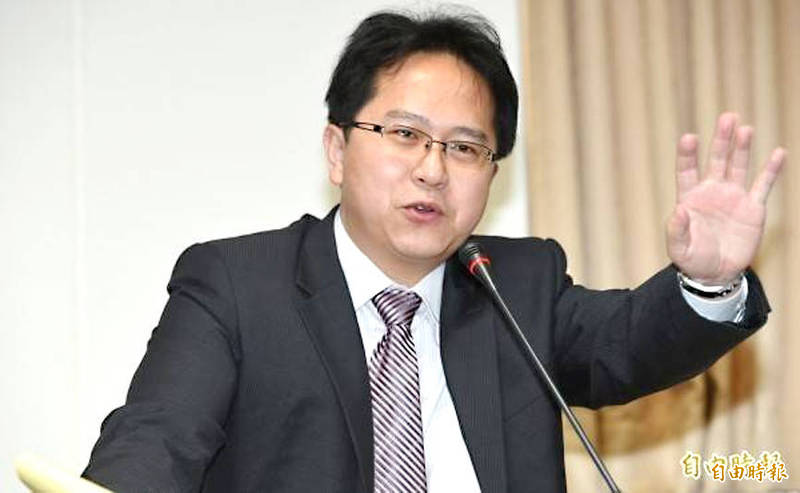《TAIPEI TIMES》 Lawmakers target traitorous parties

Chess pieces stand in front of the flags of China, left, and Taiwan on Jan. 25, 2022. Photo: Reuters
CLARITY NEEDED: After the CUPP said last year that it was advocating unification with China, there was debate about the constitutionality of punishing such behavior
By Chung Li-hua and Lee Hsin-fang / Staff reporters
Legislators have proposed amending the Anti-Infiltration Act (反滲透法) so that political parties found to have colluded with an enemy state to affect the outcome of an election can be dissolved.
The preamble of a draft amendment proposed by Democratic Progressive Party (DPP) Legislator Chiu Chih-wei (邱志偉) cited the UK’s MI5 security service as last year saying that Beijing has used Chinese agents to infiltrate all major British political parties, and was “engaging in political interference activities through donation of funds to influence policies on China.”
Australia has raised the alarm regarding similar activities.
Under the Anti-Infiltration Act, political parties that have colluded with an enemy state to interfere in the outcome of an election can only be fined.
Chiu said that the Constitutional Court has the authority to order “the dissolution of unconstitutional political parties” if their goals or activities could endanger the nation’s existence and undermine the democratic constitutional order.
He cited Item 5 of Article 5 in the Additional Articles of the Constitution, Article 77 of the Constitutional Court Procedure Act (憲法訴訟法) and Article 26 of the Political Parties Act (政黨法).
Merely imposing fines would not deter a political party from colluding with an enemy state, so the Anti-Infiltration Act should be amended to include judgements by the Constitutional Court regarding the dissolution of a political party, Chiu said.
In related developments, the Ministry of the Interior has proposed amending the Political Parties Act so that a party can be dissolved if any of its members are found guilty of contravening either the National Security Act (國家安全法) or the Organized Crime Prevention Act (組織犯罪防制條例).
The ministry proposed the amendment after the China Unification Promotion Party (CUPP), founded by Chang An-le (張安樂), announced last year that it had established a “red squad” to advocate for unification with China and launch an armed insurrection.
However, lawmakers’ reactions varied, with some supporting severe penalties for those who contravene the National Security Act, while others said it could infringe on people’s right to form political parties and organizations, as granted under the Constitution.
Executive Yuan officials said further review would be needed, as the proposal would affect other legislation.
Chang was later charged with contravening the National Security Act. He was summoned for questioning by the High Prosecutors’ Office in March last year.
The case was transferred to the Taipei District Prosecutors’ Office, which dropped the charges in December last year, citing “insufficient evidence.”
Additional reporting by Jason Pan
新聞來源:TAIPEI TIMES

Democratic Progressive Party Legislator Chiu Chih-wei is pictured in Taipei in an undated photograph. Photo: Chung Li-hua, Taipei Times















